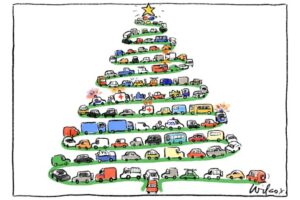
The rising cost of housing means many couples going through a divorce will struggle to return to home ownership separately.
Women in particular face barriers to being able to take out a mortgage on their own, with many on lower incomes as a result of caring for children.
There are strategies to improve the chances of returning to home ownership, according to financial advisor Karen Eley.
But the reality is a lot of women will “go into the rental market and may never purchase a home again,” she said.
Kes Ball tried to get back into the housing market after her divorce.
Competition in the housing market is fierce (ABC News: Michael Coggan)
But the rapid rise in house prices in her hometown of Newcastle means returning to home ownership appears to be increasingly out of reach.
Loading…
“When we separated, we were living in a three-bedroom brick and tile in a nice suburb with a pool in the backyard,” she said.
After the assets were split and the mortgage paid out, Ms Ball did not have enough money for a home deposit and has been renting for the seven years since her separation.
Her current lease runs out at the end of the year.
“I don’t know where I am going to be in eight weeks’ time. That’s very stressful heading into Christmas every year and it’s been the case for the past five years,” she said.
It could take decades to save for a deposit
Ms Ball sees home ownership as key to her and her daughter’s future financial stability.
She would like to see the federal government allow those on the Parenting Payment to earn more money without being penalised with higher tax rates.
Kes is not sure where she will live when her lease runs out in a few weeks. (ABC News: Ross Mcloughlin)
She believes that will allow people like her to put aside more money for a house deposit and progress in their careers.
Ms Ball would also like to see an end to negative gearing tax incentives to take some of the heat out of the property market.
“I look ahead and I do the calculations and I realise that I’m probably going to be in my 50s or 60s before I manage to save a sufficient house deposit.”
Women more likely to struggle post-divorce
Even if they get a bigger share of the assets in a divorce settlement, lower incomes mean many women will struggle to service a mortgage.
The average 25-year-old woman today, who has at least one child, can expect to earn $2 million less over their lifetime than the average 25-year-old man who becomes a father, according to a government report on the state of women’s inequality.
Financial coach Karen Eley says the reality is many women who divorce will never own a home again. (Supplied.)
Ms Eley said banks would consider a person’s credit score and income when determining whether a single person can service a loan.
“What percentage of their net income will have to go towards managing the mortgage repayments — [if it is] more than 30 per cent of your net income, it does cause financial stress,” she said.
She suggested knowing your financial circumstances before separating and having your own separate bank account set up.
“So you can have some saving history in there to show to the banks that you actually have some saving capacity.”
Your credit score can also be checked for free.
Ms Eley said, depending on the relationship, some couples may choose to hang onto the family home for 10 or 15 years until their children are older.
Others might be able to seek family support for a house deposit or financial help with mortgage repayments.
Booming house prices have exacerbated the problem. (ABC News: John Gunn.)
Rising house prices across the country since the pandemic have made purchasing a home or buying out your partner’s share of the family home even harder.
Professor of Economics at the University of Sydney, Stephen Whelan, has looked at the impact of house prices on divorce rates.
Professor Stephen Whelan says house prices has a ripple effect on separation rates.
The Australian Institute of Family Studies reported the 2023 divorce rate was the lowest it has been since the mid-1970s, with 2.3 divorces per 1,000 residents aged 16 and over.
That’s compared with a rate of 3.4 divorces per 1,000 residents 20 years ago.
Professor Whelan said more research was needed but that “house prices appear to be important in shaping the decision to separate or not”.
“When house prices don’t grow as quickly as anticipated, couples can separate knowing they will not face as large a penalty running separate households,” he said.
Calls for more flexibility in some housing schemes
Single parents are eligible for the government’s 2 per cent home deposit scheme.
But to be eligible, you need to be divorced (if you are separated but not divorced, you are not considered single).
Fiona, who is separated from her partner but not divorced, would like to see that changed.
Housing has been a major stress for Fiona since she divorced. (Supplied)
“Divorcing would eat into the savings I’m trying to build. I prioritise housing over divorce,” she said.
She said housing had been a source of stress since her separation.
“I went from a family home to couch surfing to renting at 40 years old. It has been destabilising in my and my family’s life.”
Fiona would like to access some of her superannuation to put towards buying a home, which she sees as key to her future stability.
“Something to pass onto my children and to ensure they have somewhere stable if they need it in years to come.”
Other financial tips
Caroline Mundey is a mortgage broker specialising in women leaving marriages.
“I actually went through a divorce myself and found myself as a single parent of five children. I encountered a lot of difficulties in the process of knowing how to move forward, how to own my own home,” she said.
Carloine Mundey tries to help separated and divorced women with their financial challenges. (ABC News: Brant Cumming)
She said the rising cost of housing meant those eligible for the 2 per cent deposit scheme may face further barriers to home ownership due to the size of the loan they would need to service.
An alternative initiative, which is yet to be launched, is the federal government’s Help to Buy Scheme.
Under the scheme, the government would contribute 30 per cent towards the cost of an existing home or 40 per cent of a new build to buyers with a two per cent deposit.
The government contribution would eventually need to be paid back through repayments or when the property is sold.
It will only be available to 40,000 households.
Some states also offer shared equity schemes.
Ms Mundey suggests having a mortgage broker or financial advisor alongside divorce lawyers to help work out the best settlement for a return to home ownership.
“You may be able to negotiate a lower amount of superannuation and a higher amount of cash towards buying you that home,” she said.
She also suggests shopping around for a suitable lender through a mortgage broker.
“Don’t just limit yourself to your bank because they do have limited policies,” she said.





